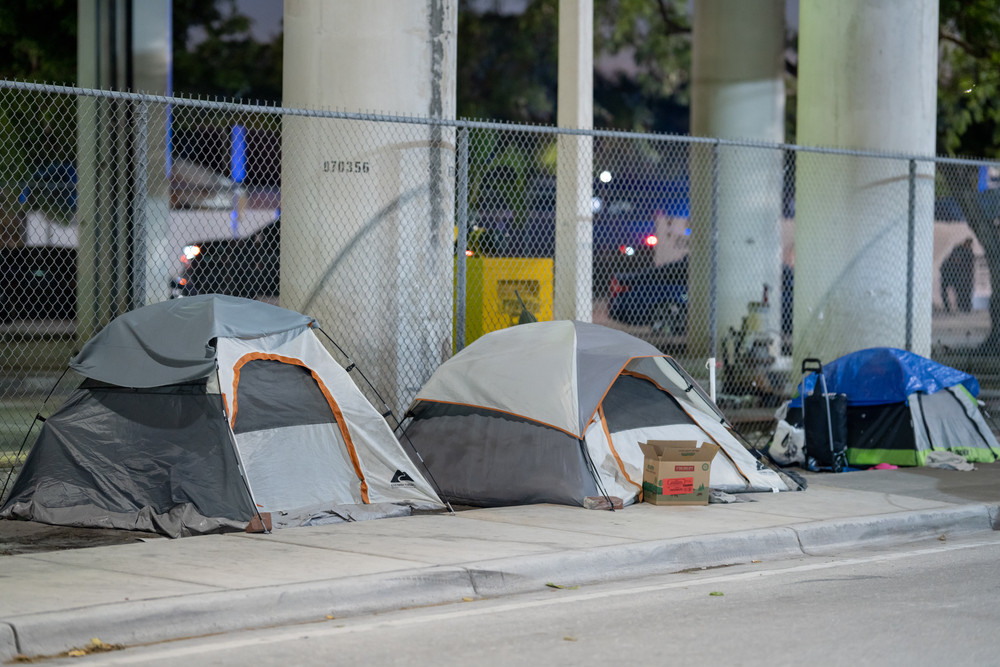Florida Develops Comprehensive Plan to Address Camping and Sleeping on Public Property
Florida Develops Comprehensive Plan to Address Camping and Sleeping on Public Property
In an effort to address homelessness, effective October 1, 2024, the State of Florida implements its comprehensive plan to preempt local ordinances permitting public camping or sleeping, to provide standards for lawful camping or sleeping on public property, and to create a private cause of action against local governments that fail to address camping or sleeping on undesignated public property. Local governments will no longer be able to authorize or otherwise allow public camping or sleeping on public property without certification of designated public property by the Department of Children and Families (“Department”). This marks the State’s intent to preempt all local laws on the issue.
Defining Public Camping or Sleeping
For the purposes of the new law “public camping or sleeping” means lodging or residing overnight in a temporary outdoor habitation used as a dwelling or living space and evidenced by the erection of a tent or other temporary shelter, the presence of bedding or pillows, or the storage of personal belongings, or means lodging or residing overnight in an outdoor space without a tent or other temporary shelter. The term does not include, lodging or residing overnight in a registered, insured motor vehicle parked in a place where it may lawfully be, or camping for recreational purposes in a place where it is lawful.
A county or municipality may not authorize or otherwise allow any person to regularly engage in public camping or sleeping on any public property, including a building, its grounds, or any right of way under the control of the county or municipality. A county may, however, by a majority vote of its governing body, designate county or municipal property within the county to be used for a continuous period of no longer than one year for the purpose of public camping or sleeping. If the designated property is within the municipality’s limits, the designation is contingent on the approval by majority vote of the municipality’s governing body. Once the designation is made, a request for certification must be submitted to the Department, which may approve the designation upon certain statutory criteria or deny the application. The Department must make a decision within 45 days of submission, and its failure to timely act shall be deemed approval of the certification.
Minimum Standards for Land Designated for Public Camping or Sleeping
If a county designates qualifying land for public camping or sleeping, it must establish and maintain minimum standards and procedures for: (1) ensuring the safety and security of the property and people using it; (2) maintaining sanitation, including, at a minimum, providing access to clean and operable restrooms and running water; (3) coordinating with regional authorities to provide behavioral health services, which must include substance abuse and mental health treatment resources; (4) prohibiting illegal substance use and alcohol on the property and enforcing the prohibition. Within 30 days of designation, the county must publish the minimum standards and procedures on its, and if applicable, the municipality’s publicly available website. Fiscally restrained counties are exempt from the requirement to establish and maintain minimum standards and procedures if the governing body makes findings that compliance would create a financial hardship.
The Department may inspect any designated property at any time, and the Department may provide notice to the county recommending closure of the designated property if the statutory requirements are no longer satisfied. The notice, if issued, must be posted on the county’s, and if applicable, the municipality’s websites.
Violation May Result in Civil Action against the County
Other than during declared emergencies, residents and owners of businesses in the county, or the Attorney General, may bring a civil action against the county, and if applicable, the municipality, to enjoin a violation of the prohibition of public camping or sleeping in non-designated areas. The complainant must provide a supporting affidavit that he or she has provided written notice of the alleged violation to the governing body of the county or, if applicable, municipality, and if the governing body(ies) do not cure the violation within five business days, suit may be filed. Successful complainants are entitled to the recovery of attorneys’ fees and costs.
Plan Goals
The practical effect of this new law is three-fold: (1) it creates an avenue for a documented, safe, managed area for the homeless to live while being provided sanitation, running water, and services by the county; (2) it prohibits homeless camps on non-designated public property; and (3) it provides a remedy for those aggrieved by and against those governments who permit homeless encampments on non-designated public property. It does not, however, provide any enforcement mechanism against the homeless population.
Next Steps for County and Municipal Officials
County and municipal officials should begin transitioning from enforcement of current local laws contrary to the new requirements, if they chose to designate public property for such purposes, begin the designation process, and should prepare to take prompt enforcement action against complaints of unlawful camping or sleeping on public property. Law enforcement executives should proactively coordinate with their county and municipal bodies and get prepared for what may be time-sensitive enforcement efforts to resolve complaints of unlawful public camping or sleeping within the five-day period defined in statute. Law enforcement agencies should also provide training to their staff regarding the requirements of the new law, its pre-emptive effect on existing local laws, if any, and should develop strategies for documenting and addressing unlawful camping and sleeping on non-designated public property.








